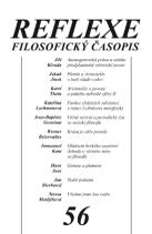Hegel’s „Faith and Knowledge“
The article is a commentary to the translation of the Introduction and Conclusion of Hegel’s work Faith and Knowledge (Glauben und Wissen) of 1802. The article emphasises that Schelling and Hegel viewed Sensible Intuition - by contrast with „reflexive philosophies of subjectivity“ (Reflexionsphilosophie der Subjektivität) - as a meanigful whole, as expression of the spirtual nature of reality decipherable by means of the traces of spirituality perceptible in the totality of intuition. On the basis of these traces we can penetrate to the „absolute idea“ which is the foundation of all reality as its self-active (selbsttätig), autonomously productive (selbstproduktiv) and emananing (Emanation) structure.
Besides the vindication of sensible intuition, which is no longer „blind“, and which has become an intimation of its own spirtual meaning, both systems, Schelling’s and Hegel’s, deploy a certain type of intellectual reconstruction designated by Hegel as the work of reason (Vernunft). What is interesting is that in both cases this reconstruction is „dialectical“, constructing with the help of negation, though neither Schelling nor Hegel use the word „dialectic“ at this time.
The rejection of the transcendent and of Ideas as the immanent core of reality are further elements of Schelling’s and Hegel’s „reconstruction“ of reality. From this perspective Hegel criticises the philosophies of Kant, Fichte and Jakobi as philosophies of the finite world which preclude knowledge of the absolute and relate to it only as to the unattainable point of approximation. Hegel sees in this a similarity with the iconoclastic tendency of Protestantism.
Backlinks: Reflexe 22
